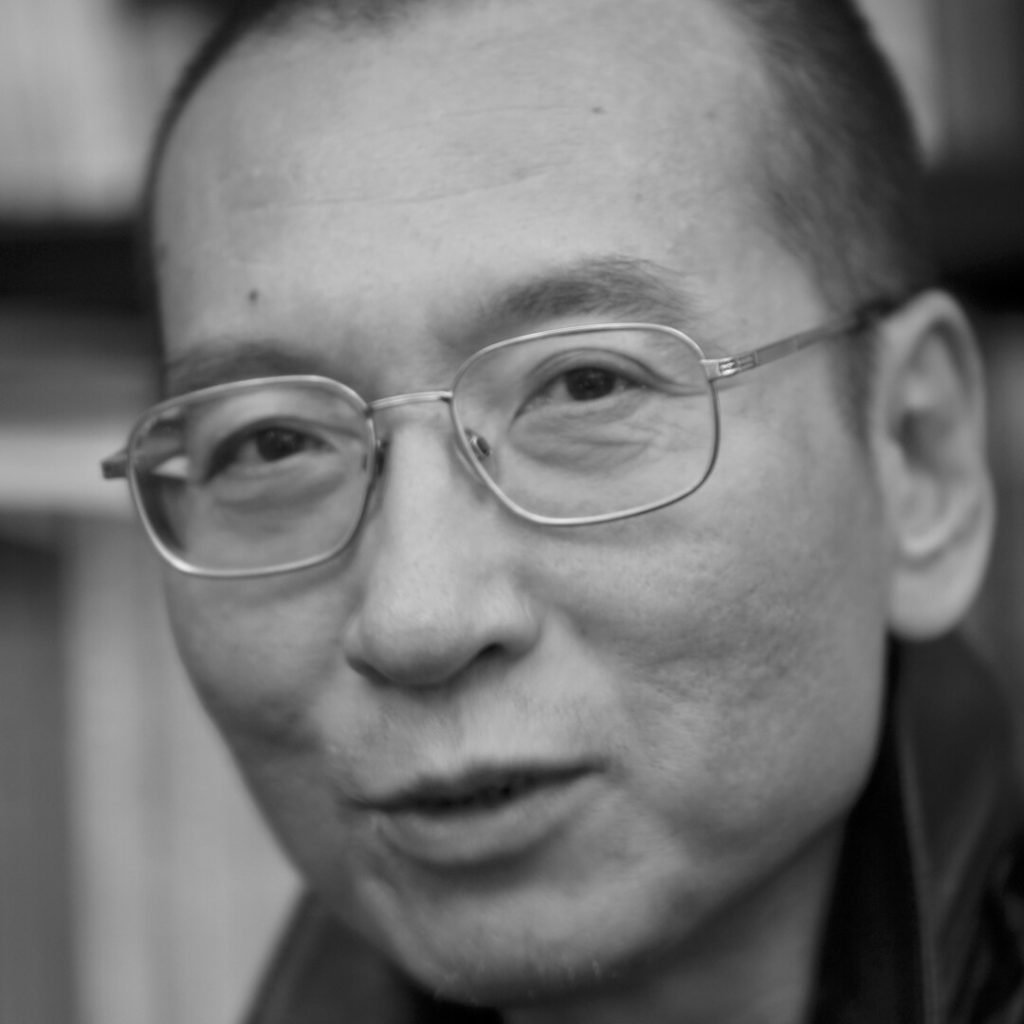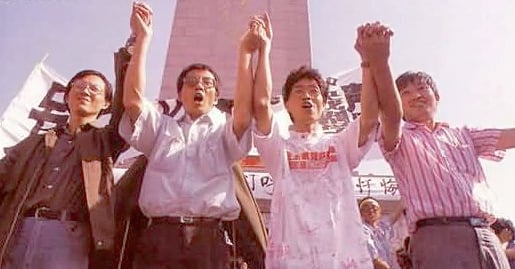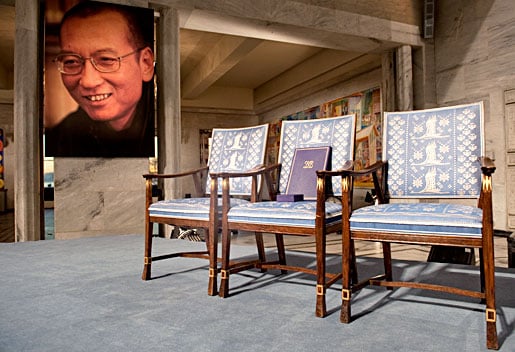Liu Xiaobo
Speed read
Liu Xiaobo was awarded the Nobel Peace Prize for his long and non-violent struggle for fundamental human rights in China.

Full name: Liu Xiaobo
Born: 28 December 1955, Changchun, China
Died: 13 July 2017, Shenyang, China
Date awarded: 8 October 2010
For people’s rights
Liu Xiaobo was a Chinese literature critic, author, university lecturer and human rights activist. Liu was a key student advisor during the 1989 Tiananmen Square protests. He went on hunger strike with other intellectuals. In the wake of the Tiananmen events, Liu was put on a publishing blacklist in China, and spent time in and out of Chinese prisons and labour camps. In 2008, he was a chief author of Charter 08, a manifesto for human rights and social change in China. Liu was consequently imprisoned again and later convicted for “inciting subversion of state power”, a sentence he was still serving at the announcement of the 2010 Nobel Peace Prize. In May 2017 Liu was granted medical probation after being diagnosed with cancer. He passed away on 13 July 2017.
"[…] because no force can block the human desire for freedom."
- Liu Xiaobo, Guardian.co.uk, 11 February, 2010.

Photo: http://liuxiaobo.eu/
A provocation?
Soon after the announcement of the Nobel Peace Prize, CNN channels to China were blocked and Liu’s wife stopped from talking to journalists. Chinese authorities in Beijing denounced the prize, saying: “Liu Xiaobo is a criminal who violated Chinese law. It’s a complete violation of the principles of the Prize and an insult to the Peace Prize itself for the Nobel committee to award the prize to such a person.” There is considerable concern about the prize damaging relations between China and Norway. However, to the press, Chairman Thorbjørn Jagland stressed the Nobel Committee’s independence.

Charter 08
Charter 08 is a manifesto initially signed by over 300 Chinese intellectuals and human rights activists which demands fundamental rights for Chinese citizens. It highlights the abolition of one-party rule and removal of penalties for free expression as crucial for a democratic China. It points out that freedom of expression is protected in the Chinese constitution: “Citizens of the People’s Republic of China shall enjoy freedom of speech […]” Two days before the Charter’s release, Liu Xiaobo, as one of its initiators, was arrested and later convicted for “inciting subversion of state power.”
| Human rights Rights that apply to all persons regardless of gender, race, ethnicity, religious affiliation or nationality. The most important are the rights enshrined in the UN Declaration of Human Rights, adopted in 1948. |
From the announcement
The Norwegian Nobel Committee has decided to award the Nobel Peace Prize for 2010 to Liu Xiaobo for his long and non-violent struggle for fundamental human rights in China. The Norwegian Nobel Committee has long believed that there is a close connection between human rights and peace. […] The campaign to establish universal human rights also in China is being waged by many Chinese, both in China itself and abroad. Through the severe punishment meted out to him, Liu has become the foremost symbol of this wide-ranging struggle for human rights in China. Thorbjørn Jagland, Oslo, October 8, 2010.
Learn more
Liu Xiaobo, a prominent independent intellectual in China, is a long-time advocate of political reform and human rights in China and an outspoken critic of the Chinese communist regime; Liu has been detained, put under house arrest and imprisoned many times for his writing and activism ...
Disclaimer: Every effort has been made by the publisher to credit organisations and individuals with regard to the supply of photographs. Please notify the publishers regarding corrections.
Nobel Prizes and laureates
Six prizes were awarded for achievements that have conferred the greatest benefit to humankind. The 12 laureates' work and discoveries range from proteins' structures and machine learning to fighting for a world free of nuclear weapons.
See them all presented here.
